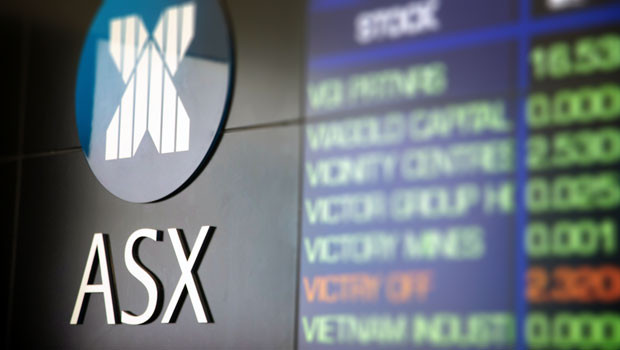Asia report: Markets mixed as RBA holds interest rate

Asia-Pacific markets finished with a mixed performance on Tuesday, as China's stimulus pledges buoyed investor sentiment, offsetting Wall Street's cautious start to the week.
Beijing announced plans for “more proactive” fiscal measures and moderately looser monetary policy to boost domestic consumption late on Monday, supporting Chinese equities despite broader regional volatility.
“China's stock markets have opted to embrace the authorities' recent ambiguous commitment to support the struggling economy, resulting in a surge in stocks to their highest point in almost a month,” said TickMill’s Patrick Munnelly.
“A statement from China's politburo on Monday indicated a transition from ‘prudent’ to ‘moderately loose’ monetary policy, along with an intention to enhance consumption.
“Similar to previous announcements in September, there were no concrete details provided, but equity investors were eager not to miss the opportunity, yet the ongoing lack of clarity has seen markets pare initial gains to trade lower on the session.”
Munnelly noted that caution was apparent in China's foreign exchange market, which remained relatively stable, and in bonds, which saw a rally that drove yields to all-time lows, suggesting scepticism about whether growth would genuinely accelerate.
“Under ‘prudent’ circumstances, a substantial amount of debt has accrued without stimulating domestic demand.
“The challenge with Chinese monetary policy to date has not been that its strictness has resulted in slow growth and low inflation, but rather that its leniency, which is primarily directed at the supply side of the economy, has contributed to larger imbalances and deflation.
“Disinflationary forces are prominent throughout the Chinese economy, reflecting an ongoing imbalance between weak domestic demand and expanding capacity as authorities emphasise investment.”
Markets finish mixed after weaker Wall Street session
In Japan, the Nikkei 225 rose 0.53% to close at 39,367.58, while the broader Topix gained 0.25% to reach 2,741.41.
Gains on Tokyo’s benchmark were led by Sumitomo Dainippon Pharma, which surged 6.07%, followed by Renesas Electronics and Sony Corporation, up 4.23% and 4.12%, respectively.
Mainland Chinese stocks also advanced, with the Shanghai Composite up 0.59% at 3,422.66 and the Shenzhen Component rising 0.75% to 10,812.58.
Espressif Systems Shanghai soared 20% in Shanghai, while Hua Yuan Property and Jiangsu Jiangnan High Polymer Fiber added over 10% each.
In contrast, Hong Kong’s Hang Seng Index fell 0.5% to 20,311.28.
Losses in the special administrative region were driven by Xinyi Solar Holdings, down 4.97%, and property and biotech firms such as Longfor Properties and WuXi Biologics, which declined 4.19% and 3.89%, respectively.
South Korea’s Kospi 100 was a standout performer, climbing 2.09% to 2,423.15.
Hyundai Steel jumped 14.07%, followed by double-digit gains for F&F Co and Kumho Petro Chemical.
Australian markets slipped, with the S&P/ASX 200 down 0.36% to 8,393.00, pressured by sharp declines of 8.96% in Pro Medicus and of 8.4% for Perpetual.
Across the Tasman Sea, New Zealand’s S&P/NZX 50 also dropped, losing 0.61% to close at 12,723.37, as Pacific Edge fell 8.33%.
In currency markets, the dollar was last up 0.19% on the yen to trade at JPY 151.50, as it rose 0.68% against the Aussie to AUD 1.5635, and advanced 0.63% on the Kiwi, changing hands at NZD 1.7159.
On the oil front, Brent crude futures held steady on ICE at $72.16 per barrel, while the NYMEX quote for West Texas Intermediate slipped marginally to $68.33.
RBA stands pat on rates, Korean opposition leader ready to pass downsized budget
At the top of the regional news agenda was the Reserve Bank of Australia, which held its benchmark interest rate steady at 4.35% amid cautious optimism about inflation returning to target.
Policymakers noted that “some of the upside risks to inflation appear to have eased,” prompting speculation about potential rate cuts in the near future.
The RBA dropped its longstanding commitment to keep policy options open, suggesting a shift in tone.
Governor Michelle Bulloch stated that mixed economic data, including weaker GDP figures last week, had provided “some confidence” that inflationary pressures were easing, although risks remained.
Meanwhile, in South Korea, the leader of the opposition Democratic Party (DP), Lee Jae-myung, announced his party's intention to pass a downsized budget bill in a plenary session on Tuesday.
Lee argued that swift passage of the budget could ease political and economic uncertainty stemming from president Yoon Suk Yeol’s controversial martial law declaration last week.
The budget’s approval, Lee said, would be critical to addressing the economic challenges facing the nation.
Lee also proposed an emergency economic review meeting involving both government and opposition representatives to address the fallout from recent political turbulence.
The DP further indicated willingness to consider future budget increases in areas directly tied to economic recovery and public welfare.
Reporting by Josh White for Sharecast.com.